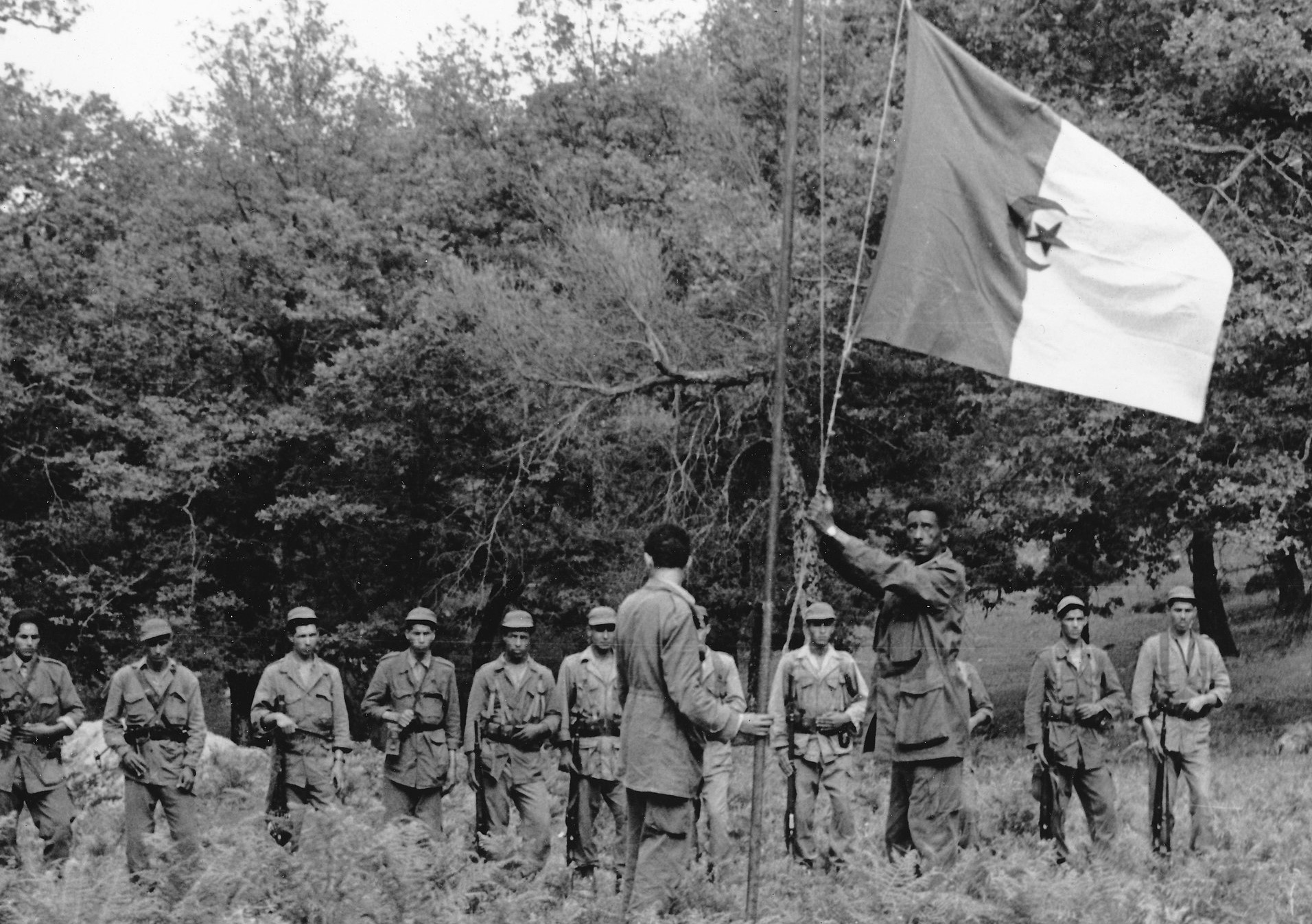This article, marking 60 years since the end of the Algerian war of national liberation, appeared in Révolution, the paper of the French section of the International Marxist Tendency, in March 2022.
[Originally published in French at marxiste.org]
On 18 March 1962, General de Gaulle announced the end of military operations in Algeria and the holding of a referendum on the country’s self-determination. After seven years of war, Algeria gained its independence.
In France, the memory of this war is the subject of a ‘battle’ between different tendencies of the bourgeoisie, who vacillate between hypocritical repentance (Hollande, Macron, etc.) and colonialist declarations (Sarkozy, Zemmour, etc.).
Colonisation
France’s colonisation of Algeria began with the conquest of 1830. This was no easy matter for the French army. Resistance organised by Emir Abdelkader lasted until the late 1840s, and revolts broke out regularly until the early 20th century. Like all colonial conquests, this campaign was accompanied by abominable massacres that aroused public opinion even in France.
Paris soon encouraged emigration to its colony, not only from France but also from other European countries. In 1954, at the start of the war of independence, the number of Europeans living in Algeria – the pieds noirs – was close to one million. Contrary to popular belief, many of them were quite poor and their average standard of living was lower than in metropolitan France. Alongside a large number of small shopkeepers and civil servants, there was even a small working class of European origin.
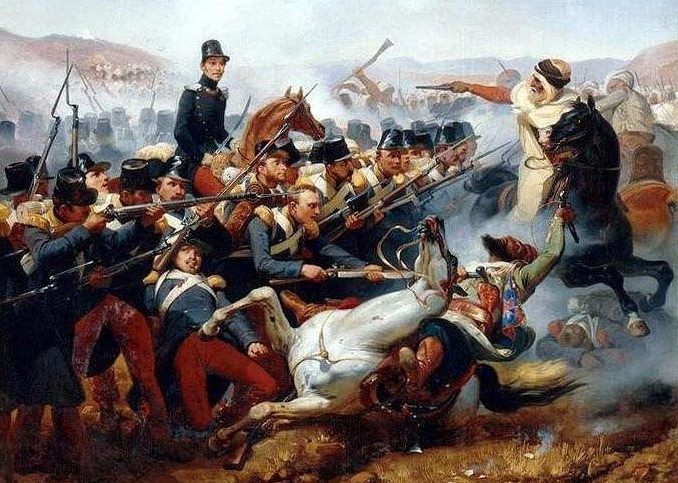 France’s colonisation of Algeria began with the conquest of 1830 / Image: public domain
France’s colonisation of Algeria began with the conquest of 1830 / Image: public domain
Towering above these small settlers, a handful of large landowners monopolised the best land to the detriment of the great mass of Algerian peasants. The indigenous population, then referred to as ‘Muslims’, was mainly made up of millions of poor or landless peasants, but also an embryonic proletariat and a rising petty bourgeoisie. In 1954, Muslims made up nine-tenths of the population, and they were deprived of most civil rights.
For the French bourgeoisie, Algeria was primarily a reserve of raw materials and agricultural produce for export. As a result, there was virtually no investment in the technical development of the economy, which was still very backward compared with metropolitan France and cruelly lacking in modern infrastructure.
The movement for Algerian independence developed in the early 20th century, and it strove to win the support of the French labour movement. The SFIO (Socialist party) leadership defended the idea of “humanitarian” and “civilising” colonisation, but the Communist Party (PCF, founded in 1920) took a resolutely pro-independence stance. Fully in line with the positions of the Communist International (before its Stalinist degeneration), the PCF helped politically organise Algerian workers in metropolitan France, and its Algerian branch opened up to the indigenous population. At the instigation of Leon Trotsky, who was following the development of the French communist movement at the time, local leaders were even expelled from the party for refusing to allow Muslims to join.
Many of the future leaders of the Algerian liberation movements initially came through the ranks of the communists in the 1920s. Messali Hadj – founder of the first Algerian independence party, the Etoile Nord-Africaine (the North African Star) – was an early communist militant. However, after its Stalinization, the PCF made a series of mistakes and betrayals of the anti-colonial struggle. In 1936, during the Popular Front, it approved the banning of the Etoile Nord-Africaine by Léon Blum's government, as well as the arrest of several of its leaders. The link between the French labour movement and the Algerian liberation movement was thus severed.
From Sétif to Diên Biên Phu
After the Second World War, hopes for the ‘democratisation’ of the colonies were high among the indigenous population, who had paid a heavy price for the imperialist war as members of the French colonial troops. In May 1945, thousands of Algerians answered the call of pro-independence organisations and demonstrated in the town of Sétif, demanding equal civil rights and improved living conditions. The movement was brutally repressed by the police, army and settler militias, who killed and tortured the natives. In the space of a few weeks, the repression claimed several thousand lives – up to 30,000, according to some historians’ estimates.
In the face of these massacres, the attitude of the official leaders of the French labour movement was criminal. In Algeria, elected SFIO officials themselves organised settler militias to hunt down demonstrators. As for the PCF leadership, it called the independence fighters who organised the peaceful demonstrations in Sétif “Hitlerite provocateurs”. For the PCF leadership, its priority was the maintenance at all costs of the ‘national unity’ government then installed in Paris, which included several ‘Communist’ ministers. The Algerians were not the only ones to pay the price for this opportunism: so too did the Madagascans (massacred by the tens of thousands in 1947) and the Indochinese. To regain control of its colonies after the chaos of World War II, French imperialism stepped up repression and attempted to regain military control of Vietnam.
On 7 May 1954, French troops were finally crushed by the Viet-Minh at Diên Biên Phu. French colonialism was shaken to its core, encouraging the Algerian independence movement to go on the offensive. Since the massacres of 1945, the movement had been radicalised by repression. Most of the old leaders who, like Messali Hadj, advocated a moderate line, were pushed aside in favour of a new layer of young leaders who looked to Nasser’s Egypt as a model of “national revolution”.
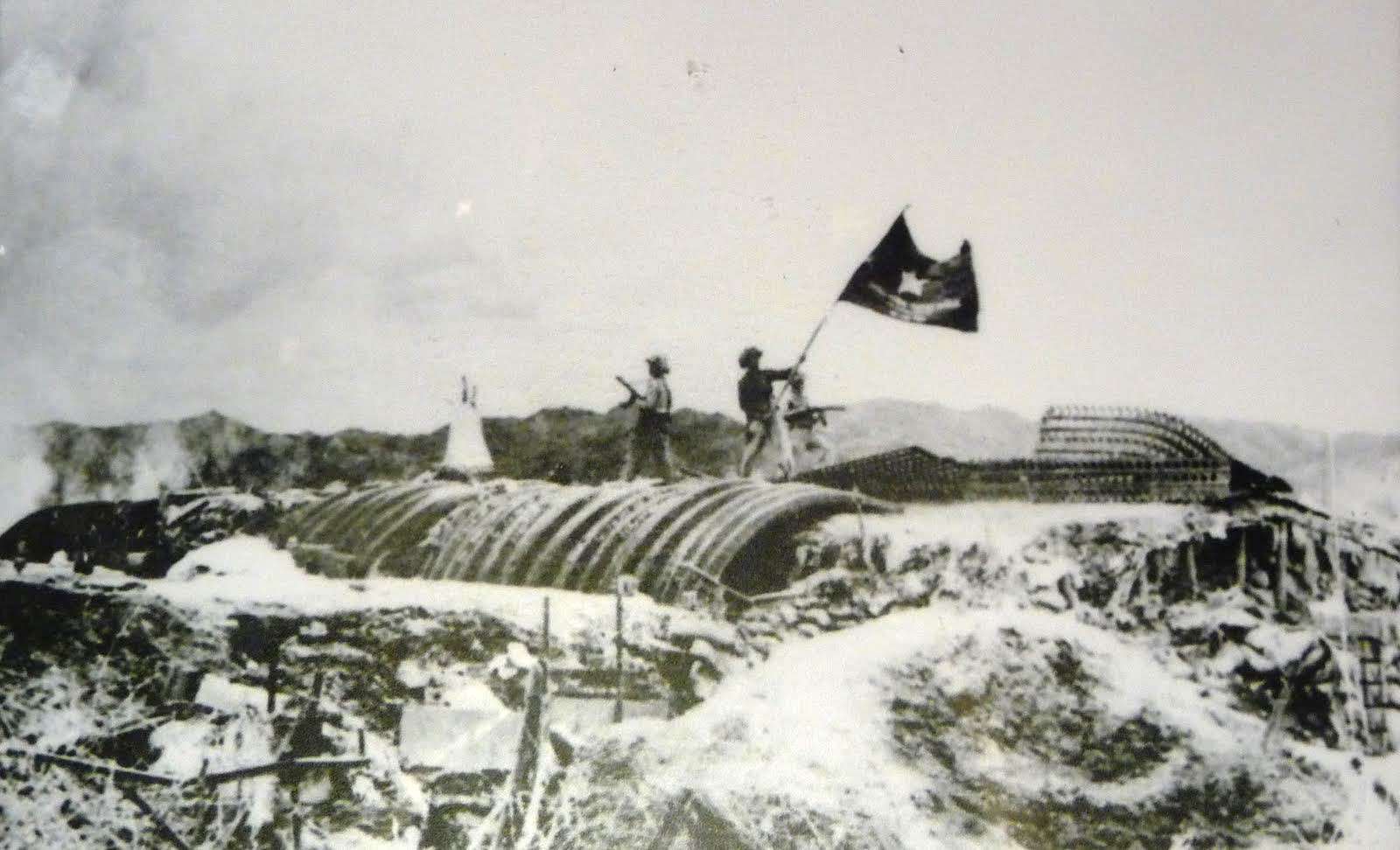 On 7 May 1954, French troops were finally crushed by the Viet-Minh at Diên Biên Phu / Image: public domain
On 7 May 1954, French troops were finally crushed by the Viet-Minh at Diên Biên Phu / Image: public domain
On 1 November 1954, a new organisation, the Front de Libération Nationale (FLN), announced the start of a war of liberation and carried out a wave of attacks on French infrastructure in Algeria. The government deployed the army and cracked down on Algerian independence and communist organisations. At the same time, including a carrot as well as a stick, Paris implemented timid reforms aimed at modernising Algeria, and it granted some civil rights to the indigenous population. But it was both too little and too late.
On 20 August 1955, an insurrection broke out in Constantinois, on the initiative of the FLN. Many colonists were murdered by the insurgents. The repression was terrible: the army and police razed entire villages and rounded up civilians, who were machine-gunned to death and buried in mass graves. The conflict entered a new phase. 60,000 young Frenchmen, having completed their military service, were called up. In France, this led to strikes and sabotage.
In 1956, the SFIO government, supported by PCF deputies, gave the army carte blanche to restore order in Algeria. Individual freedoms were suspended. Entire populations were displaced for control purposes, while torture, rape and summary executions became commonplace. The French secret services organised explosive attacks against the civilian population in Muslim neighbourhoods. All these crimes were perpetrated under the authority of a ‘socialist’ government entirely subservient to the French ruling class.
The French workers’ movement and the FLN
The SFIO defended the idea of ‘progressive’ colonialism and resolutely opposed any prospect of independence. The Minister of the Interior in 1956, François Mitterrand, who was close to the SFIO, was one of the strongest advocates of ‘firmness’ in the face of independence fighters. For its part, the PCF leadership verbally defended the right to independence, but in practice systematically followed in the SFIO’s footsteps. The ‘communist’ leaders hoped to regain their place in an alliance government with the Socialists, and so avoided anything that might stand in the way of this. It wasn’t until De Gaulle came to power in 1958 that the PCF finally began to clearly oppose the war, though without putting forward a revolutionary perspective.
The PCF could and should have defended a different policy, as it had done during the colonial wars of the 1920s, in the Moroccan Rif and in Syria. At that time, It had given critical support to Syrian and Moroccan independence fighters, led several anti-war mobilisation campaigns (including a general strike in 1926), and organised special anti-militarist propaganda cells within the French army. In 1954, instead of supporting the French bourgeoisie’s war against the Algerian people, it should have massively mobilised workers against the war and defended the perspective of a socialist Algeria and a socialist France, united in free cooperation. This would have helped overcome the national divisions inherited from colonial oppression. The problem was that, at the time, the PCF leadership – being completely Stalinised – had abandoned any revolutionary perspective.
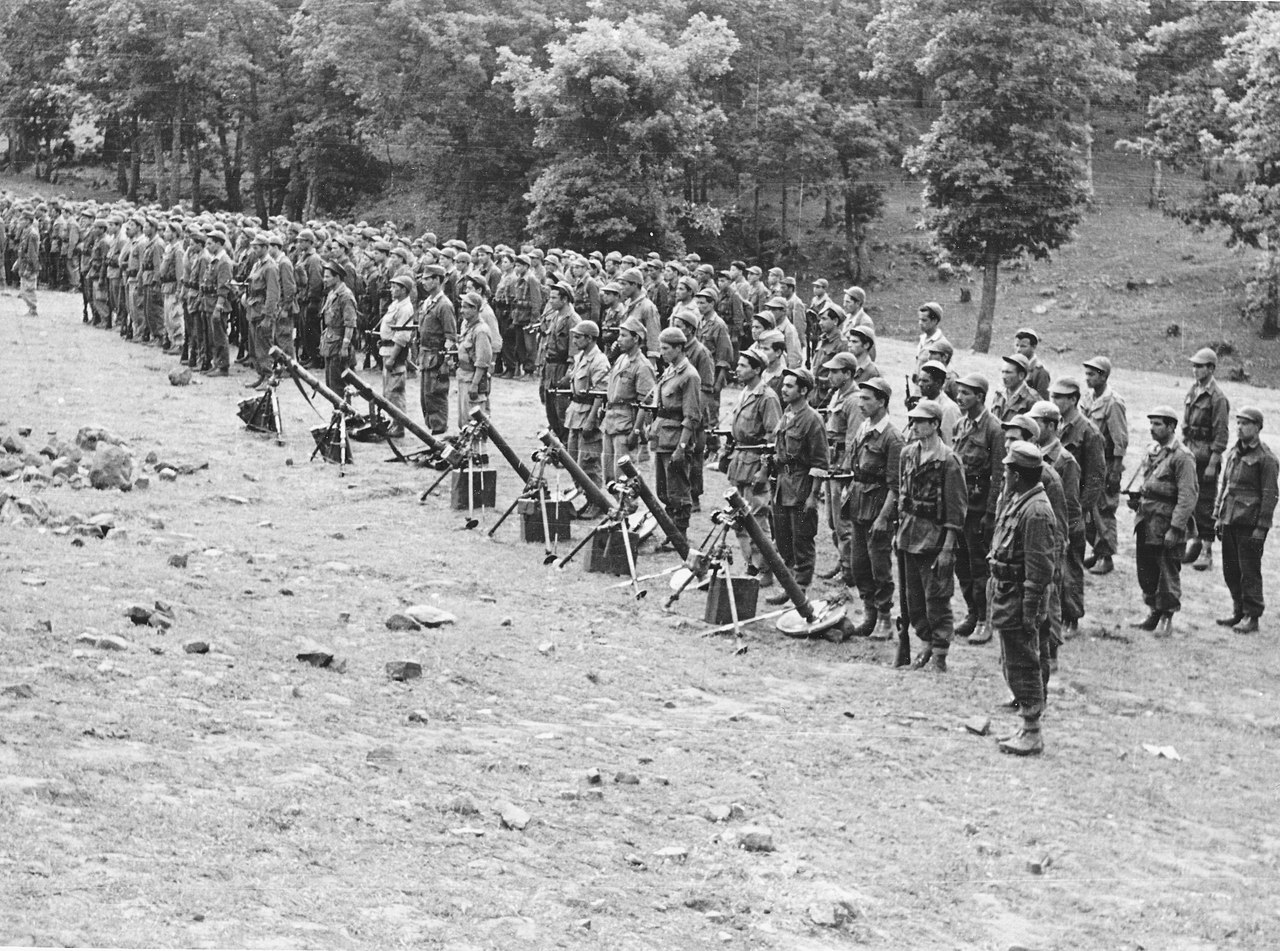 The FLN never made any serious attempt to appeal to the solidarity of the French working class / Image: public domain
The FLN never made any serious attempt to appeal to the solidarity of the French working class / Image: public domain
In the wake of World War II, the procrastination and opportunism of the PCF leadership left the field completely open to Algerian nationalists. And led by nationalist intellectuals, the FLN defended the fiction of unity of the Algerian people across class distinctions. It based its strategy on terrorism and guerrilla warfare against the occupying forces – not so much with the aim of defeating the French army, but rather to pressure the government with a view to negotiations.
Similarly, if the FLN sometimes called on Algerian workers to strike, it was not with a view to revolutionary mobilisation, but to demonstrate (to the UN in particular) its authority over the Algerian people. The FLN never made any serious attempt to appeal to the solidarity of the French working class or the poor petits colons. The latter could have been won over to the struggle against the colonial system that kept them in misery. Instead, by multiplying its attacks on French civilians, the FLN drove them into the arms of the big landowners.
The Battle of Algiers
At the end of 1956, the French army’s strength in Algeria reached a peak (470,000 men), and repression drove thousands of Algerians underground. As the FLN stepped up its attacks, military reprisals became so frequent that even the Algiers police chief resigned in protest. The corpses of Algerians, tortured and thrown alive into the sea, were regularly found on the beaches of Algiers.
The situation in the city was explosive, and much of the Muslim quarter was under the control of the independence fighters. The government decided to ‘pacify’ the city: this marked the start of the Battle of Algiers, a gigantic police operation led by the army. 24,000 Algerians were arrested, including entire families. Thousands were tortured and hundreds executed. However, less than a year after this French ‘victory’, the FLN regained control of the districts from which it had been expelled.
In France, the return of the first conscripts to metropolitan France was accompanied by a proliferation of accounts of torture by the French army. Despite censorship, one revelation after another had a profound effect on French working-class opinion. The situation gradually became inextricable for the metropolitan bourgeoisie.
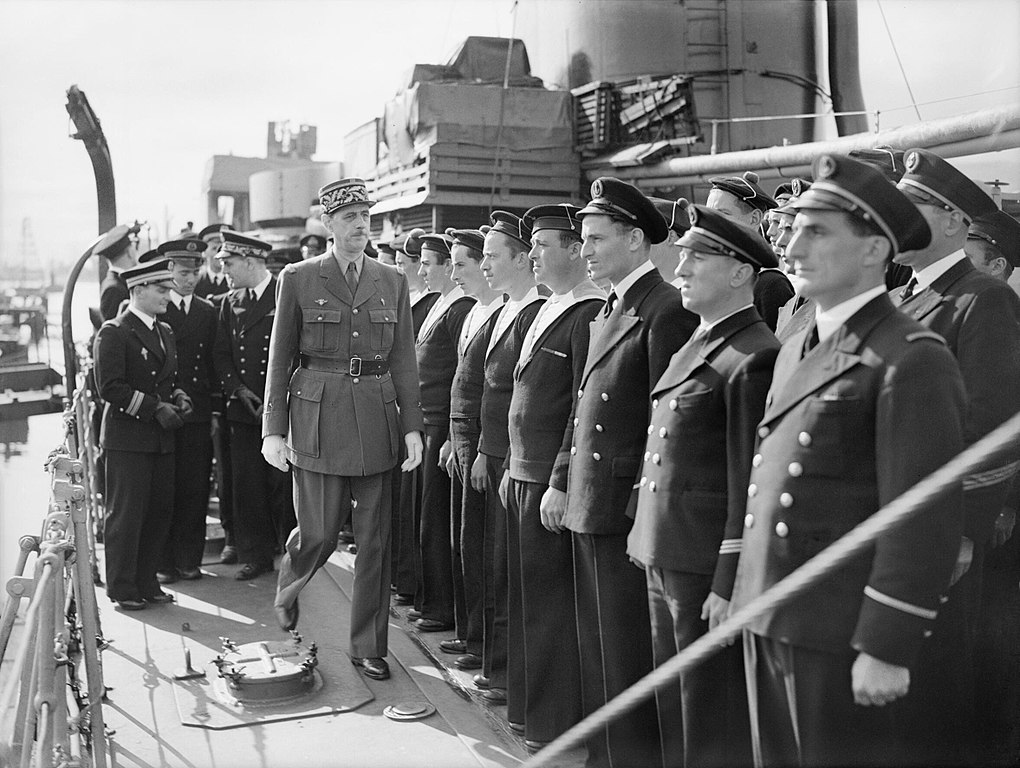 Faced with the threat of a coup d'état, some centrists and socialists turned to General de Gaulle / Image: public domain
Faced with the threat of a coup d'état, some centrists and socialists turned to General de Gaulle / Image: public domain
A section of the ruling class was well aware that only major concessions could stop the war. To wrest the Muslim population from the influence of the FLN, it would be necessary to concede civic equality to Muslims, as well as broad autonomy for Algeria. But every step in this direction provoked the anger of the colonists, who began to organise politically.
The colonists’ revolt and the birth of the Fifth Republic
Exasperated by the hesitations of successive governments, some generals prepared a military coup. In May 1958, large-scale demonstrations by pieds noirs and supporters of French Algeria broke out in Algeria and in some French cities. Supported by the army and police, the colonial petty bourgeoisie took control of the cities and set up ‘committees of public salvation’ to demand the formation of a new government in Paris.
In France, the government reacted to the coup by declaring a state of emergency in mainland France, with the support of the PCF. Once again, the Communist Party leadership followed the government’s lead.
To repel the putsch, it would have been necessary, on the contrary, to denounce the duplicity of the government, which supported and backed the militants of French Algeria until they escaped its control. The working class should also have been mobilised, organised and called on to take charge of the situation, rather than giving the government additional special powers. In fact, the measures taken, officially with the intention to suppress the attempted coup d'état, served above all to muzzle the labour movement once the putsch had succeeded.
Faced with the threat of a coup d'état, some centrists and socialists turned to General de Gaulle. In reality, de Gaulle was in league with the military faction and was demanding that power be handed over to him – which was precisely what some of the coup plotters were demanding. Unable to envisage mobilising the workers against the generals, the Socialist leaders threw in the towel. On 29 May 1958, De Gaulle came to power. The generals and colonists were jubilant. They imagined that the new regime would fight the war “to the bitter end”.
The last years of the war
Very soon, however, De Gaulle’s authoritarian regime found itself in the same impasse as its predecessor. Radicalised by repression, the Algerian population overwhelmingly supported the FLN. The metropolitan bourgeoisie wanted to put an end to a costly adventure that threatened its political stability and economy. Revolted by the exactions and torture, the working class was increasingly opposed to a ‘dirty war’ in which thousands of young conscripts lost their lives. De Gaulle, therefore, sought a negotiated solution with the FLN, and in 1959 recognised Algeria’s right to self-determination.
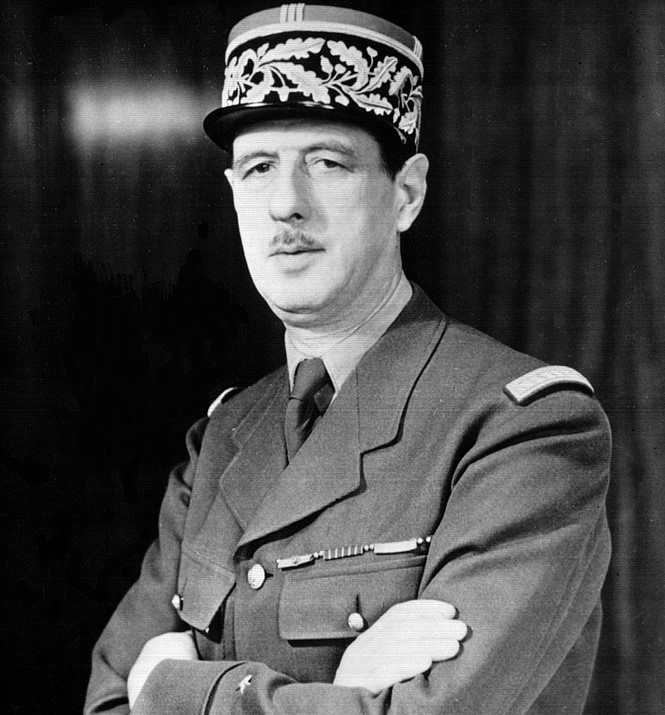 De Gaulle’s authoritarian regime found itself in the same impasse as its predecessor / Image: public domain
De Gaulle’s authoritarian regime found itself in the same impasse as its predecessor / Image: public domain
The colonial petty bourgeoisie felt betrayed and tried to repeat the coup of May 1958. In April 1961, an attempted coup d'état was staged by radicalised colonists in Algeria, supported by several generals, paratroopers and the Foreign Legion. But the majority of the army did not follow suit, and the Gaullist regime regained control of the situation.
The die-hard putschists then created the Organisation de l'Armée Secrète (OAS), a fascist-oriented terrorist organisation, which carried out a series of deadly attacks on both sides of the Mediterranean. Despite their handiwork, the war was entering its final phase, and De Gaulle had no choice but to negotiate with the FLN.
The final years of the conflict were not the least bloody. To prevent the FLN from negotiating from a position of strength, the Gaullist regime began to use methods hitherto reserved for Algeria in metropolitan France itself. The police carried out mass round-ups of Algerian workers in France. Torture was rife in Paris police stations. On 17 October 1961, a peace demonstration – called by the FLN – was bloodily repressed in the heart of Paris. Police fired live ammunition and threw wounded demonstrators into the Seine. The Paris police crackdown left hundreds dead.
On 18 March 1962, the Evian Agreements signed by the FLN and the French government put an end to the war. Algeria became an independent republic led by the FLN. A policy of agrarian reform and partial nationalisation was pursued in an attempt to develop the country – but without overturning capitalism, or breaking with the most important French companies.
While this policy improved the standard of living of the masses, it also enriched a corrupt bureaucracy that appropriated power. After independence, FLN leaders were torn apart by bureaucratic power struggles. In 1965, Colonel Boumédiène established a military dictatorship whose heirs are still at the head of the state. Today, foreign companies (notably French) still dominate Algeria. It is against this situation that the Algerian masses have risen up in recent years.
The Algerian working class is more powerful than ever. Only a socialist revolution can develop the country and rid it of the domination of the generals and the imperialist powers. In France, the workers’ movement must look beyond the hypocritical declarations of ‘repentance’ by a section of the bourgeoisie. Macron sheds crocodile tears over the crimes of the Algerian war, but defends the French companies enriched by colonisation and sends troops to defend their interests in the Sahel.
The labour movement must sweep away this hypocrisy. We must denounce the past crimes of French colonialism, but we must also attack its heirs, those who benefited from the suffering of Algerians and young French conscripts, and those who still send military expeditions to defend their interests and class domination. Only by expropriating the great French capitalists, whose wealth is based on centuries of exploitation of workers (colonial and French), can we put an end to the legacy of colonial barbarism.

